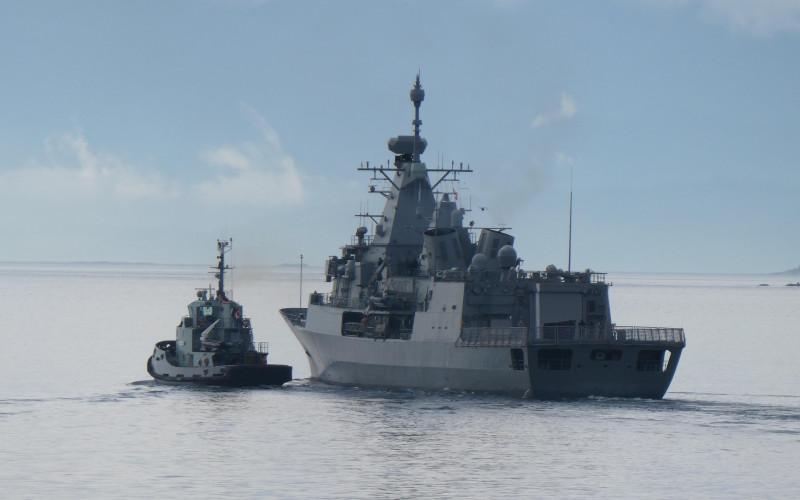New Zealand is waking up to threats
Posted By Tim Hurdle on May 23, 2024 @ 11:00

While Australian defence policy looks north, Kiwis focus west.
New Zealand has always benefited from strategic isolation and the distance from international conflicts. But as global dangers increase, the reality of the geo-political situation is cutting through in New Zealand’s public discourse. With the active aggression of totalitarian powers like China and Russia causing disruption, New Zealand is waking up the threats they pose to the international order.
That’s a good thing for Australia, creating a stronger, more engaged partner to work with in the Pacific and on regional security arrangements.
Awareness of the threat that China and Russia pose has evolved in the past 10 years. In June 2022, then Labour prime minister Jacinda Ardern attended the NATO Summit, calling her participation a ‘rare thing’. She condemned Russia’s invasion of Ukraine and said ‘China’s increasing assertiveness is resulting in geopolitical change and competition.’ This mild comment provoked the strong rebuke from Beijing that her comments were ‘unhelpful, regrettable and wrong.’ Her open criticism was a shift from a foreign policy that had been closely tied to protecting the strong trading relationship with China.
This shift continued under Chris Hipkins, who replaced Ardern as prime minister until Labour lost office in November. The Ministry of Foreign Affairs and Trade released a strategic foreign policy assessment, ‘Navigating a shifting world’, in July 2023. And Hipkins’s defence minister, Andrew Little, said ‘In 2023, we do not live in a benign strategic environment’ as he unveiled a Defence Policy Strategy Statement that achieved cross-party support.
With a three-party centre-right coalition government now in office, there is a growing recognition that New Zealand will need to spend more on defence. This is challenging due to excessive pandemic spending that has left a legacy of a bloated public service and a structural fiscal deficit. But on 10 May the government said money from cost-cutting elsewhere in the Defence budget would be recycled back into Defence rather than being subsumed by fiscal consolidation.
All parties in the new government have made positive statements about New Zealand reaching the NATO standard of spending 2 percent of gross domestic product on defence. New Zealand last achieved this level in 1992, and spending has continued to decline in recent decades. Currently sitting just above 1 percent of GDP, the fraction is significantly less than Australia’s. New Zealand’s GDP per capita is only three-quarters of Australia’s, meaning its defence spending per person is much lower.
The inaugural Australia–New Zealand Foreign and Defence Ministerial Consultations in February bought a new focus to the trans-Tasman relationship. Ministers of both countries said the meetings had taken place amid the most challenging global strategic environment in decades. They committed to increasing military integration.
The debate in New Zealand has become sharper as the country has considered joining Pillar 2 of AUKUS, the part of the Australian-British-US defence partnership that deals with technology other than nuclear submarines.
Active military collaboration for international security marks a strong shift away from the view of then Labour prime minister Helen Clark, who said in March 2001 that New Zealand was ‘very lucky to live in one of the most strategically secure environments in the world’ and that New Zealanders ‘would like other nations to experience the peace of a benign strategic environment too.’ For as long as her view dominated foreign policy circles, attention was on trade policy; there was little focus on national security or defence issues, beyond a fascination with nuclear disarmament.
Clark and her generation promoted a so-called independent foreign policy. Encouraged by the anti-American and anti-nuclear lobby, this amounted to a shift away from the Western alliance.
The more modern view in New Zealand is that, as a small country, it must help to uphold the international rules-based system and contribute to stability and security efforts. New Zealand has engaged with Asian-centred regional collaborative security frameworks.
More spending is needed. The government will release a new Defence Capability Plan in June or July, setting out procurement priorities. There is no longer a sense that spending on defence will be unpopular.
The main challenge will be renewing the fleet of the Royal New Zealand Navy (RNZN). Key units that need replacement are the two Anzac-class frigates, and there are clear signals that New Zealand will consider buying ships of the general-purpose frigate class that is intended for the Royal Australian Navy. Using the same design would promote interoperability and economy.
The Royal New Zealand Air Force has modernised with the recent purchase of P-8A Poseidon maritime patrollers and C-130J Hercules airlifters. New naval helicopters are likely to come soon.
New Zealand can provide better awareness of the eastern approaches to Australia with Poseidons. A runway extension on the Chatham Islands, 800km east of mainland New Zealand, was opened in January to handle aircraft of the size of Poseidons.
These assets are vital to supporting ongoing participation in collective security efforts. The first international deployment of a New Zealand Poseidon was to Japan in April, to help enforce UN Security Council sanctions against North Korea. Kiwi gunners have trained Ukrainian soldiers in Britain. The RNZN is vital to Pacific relationships.
New Zealand’s strategic isolation is becoming less apparent amid cyber attacks on the parliament in Wellington, great-power competition in Antarctica and acceptance that the country’s trade routes are exposed. Global conflicts feature on Kiwis’ screens daily, showing that the world is a more dangerous place and that foreign policy must change.
It’s understood that stepping up will come at a cost. New Zealand needs to have defence capability that can integrate and enhance Australian forces in the Indo-Pacific. The new government knows that Australia, as New Zealand’s only formal defence ally, is the most important partner.
Article printed from The Strategist: https://aspistrategist.ru
URL to article: /new-zealand-is-waking-up-to-threats/
Click here to print.